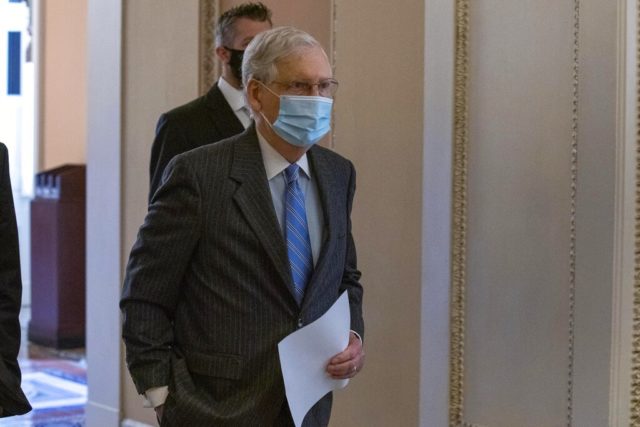With Republicans holding a 53-47 majority in the Senate, Trump’s pick for the court is almost certain to be confirmed. All Democrats are expected to oppose Barrett’s confirmation.
“This is a groundbreaking, historic moment,” said Sen. Lindsey Graham, R-S.C., the committee chairman. “We did it.”
Barrett, an appellate court judge from Indiana, appeared for three days before the committee last week, batting back Democrats’ questions. She was asked about her approach to legal questions surrounding abortion access, gay marriage and the nation’s tradition of a peaceful transfer of presidential power.
Trump has said he wants a judge seated in time to hear any potential disputes arising from the upcoming election. Barrett declined to say whether she would withdraw from participating in such cases.
Sen. Ted Cruz, R-Texas, said the court fight will be perhaps the “single most important accomplishment” of Trump’s presidency.
Republican senators ridiculed the Democratic boycott as election-year antics.
“Rather than show up and do their job, they continue the theater,” said Sen. John Cornyn, R-Texas, pointing out the posters at the Democrats’ desks. Sen. Mike Lee, R-Utah, called the boycott “a walkout on the American people.”
But Democrats on the committee insisted the Republicans were rushing the nomination to tip the court even further to the right.
Sen. Mazie Hirono, D-Hawaii, called Barrett a “clear and present danger” to the values Ginsburg fought for on the court.
“I stand here for Justice Ginsburg,” said Sen. Amy Klobuchar, D-Minn., urging Americans to vote their protests at the ballot box.
Many judicial nominees decline to discuss their views on various issues, saying they will consider the cases as they come. Barrett took a similar approach, drawing deep skepticism from Democrats because she had previously spoken out against abortion and past rulings on the health law.
Barrett released dozens of answers this week to additional questions senators had posed, but her responses were similar as she declined to weigh in on whether the landmark Roe v. Wade abortion ruling is a “super precedent” of the court or whether the president could unilaterally change the date set in law for the election.
Senate Majority Leader McConnell, R-Ky., has defended Barrett as “exceptionally qualified” as well as his own decision to push her nomination forward. He had refused to consider President Barack Obama’s nominee in February 2016, saying it was too close to a presidential election that year; Obama was in his second and final term.
Republicans have focused on Barrett’s Catholic faith, calling her a role model for conservative and religious women.
Republicans also warn that Democrats will “pack the court” by adding more justices if they win the White House and the Senate, although key Democrats have not said that would be a priority.
Biden said last week he’s “not a fan” of adding justices to balance the court ideologically. But during his own interview with “60 Minutes,” an excerpt of which CBS released Friday, Biden said he won’t rule out studying the addition of members as part of a commission he plans to name to look at court changes if he’s elected.
Associated Press writers Lisa Mascaro, Mary Clare Jalonick, Aamer Madhani, and Thomas Beaumont contributed to this report.
This article originally appeared on APNews.com.


